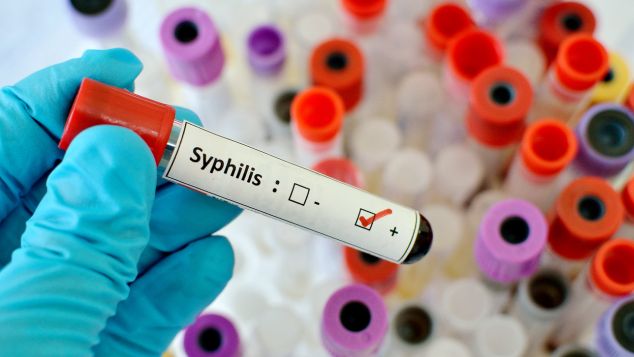
Self-testing for syphilis could reduce the sexually transmissible infection’s global impact, a Monash University-led study has found.
Syphilis continues to be a major health issue, with an estimated seven million people infected world-wide each year.
Published in The Lancet Public Health, the global systematic review found syphilis self-testing was acceptable and feasible to implement. Like self-testing for COVID or HIV, syphilis self-tests allow an individual to test themselves at home, without the need to visit a health facility.
The world-first synthesis of evidence will inform future World Health Organization (WHO) recommendations on syphilis self-testing.
Senior author and Melbourne Sexual Health Centre physician, Monash University Central Clinical School Associate Professor Jason Ong, said self-testing could help improve testing rates and earlier treatment.
“The COVID-19 pandemic has shown us the value of self-tests,” Associate Professor Ong said. “Syphilis self-testing is a key that unlocks the door to widespread testing and treatment, much like self-testing has done for HIV, Hepatitis C and COVID-19.
“If we can improve access to self-testing for syphilis, we can also have a major impact on the current syphilis epidemic in Australia and beyond. This has global policy implications for countries to license and allow syphilis self-testing kits to be accessible, so that populations who are less likely to attend facilities to test are able to test themselves privately, accurately and at their convenience.”
The study found compelling evidence that self-testing across many different diseases, including HIV and COVID-19, is safe, acceptable and effective to implement, and can be cost-effective, particularly among those unreached by existing services including key populations. The potential benefits from syphilis self-testing outweighed any potential risks.
“Early detection and treatment access are critical to controlling the syphilis pandemic,” the researchers found. “SST (syphilis self-testing) can complement existing testing services, as further decentralisation of syphilis testing allows more underserved populations to access testing and care more easily.
“Countries should consider incorporating the offer of SST as part of a package of self-testing and self-care programs. Future implementation research, especially on the sensitivity and specificity of SST compared to facility-based testing, would strengthen the evidence base and help optimise service delivery and national strategic planning.
The report found single syphilis, and dual HIV/syphilis rapid tests had been an important innovation in many settings and had potential to increase syphilis testing and treatment coverage, particularly during pregnancy as syphilis can harm unborn babies.
Professor Christopher Fairley, the Director of Melbourne Sexual Health Centre, emphasised the importance of testing.
“The case for more testing and treatment is overwhelming; syphilis cases fell 98 per cent when penicillin was discovered,” Professor Fairley said. “How you test doesn’t matter; you just need to test and self-testing, while a critical component of testing overall, remains substantially underused. Governments need to make it widely available.”
The most recently statistics for sexual health amongst Western Australia’s population have shown a decrease in the number of cases of syphilis in the quarter ending in March 2023. There were 251 infectious cases of the disease in that period.
Around 800 cases in the previous year, 62 per cent of cases were men, while 38 per cent were in women.
This study was conducted in collaboration with WHO, the University of Melbourne, and the London School of Hygiene & Tropical Medicine.
Source: Media Release
You can support our work by subscribing to our Patreon
or contributing to our GoFundMe campaign.






